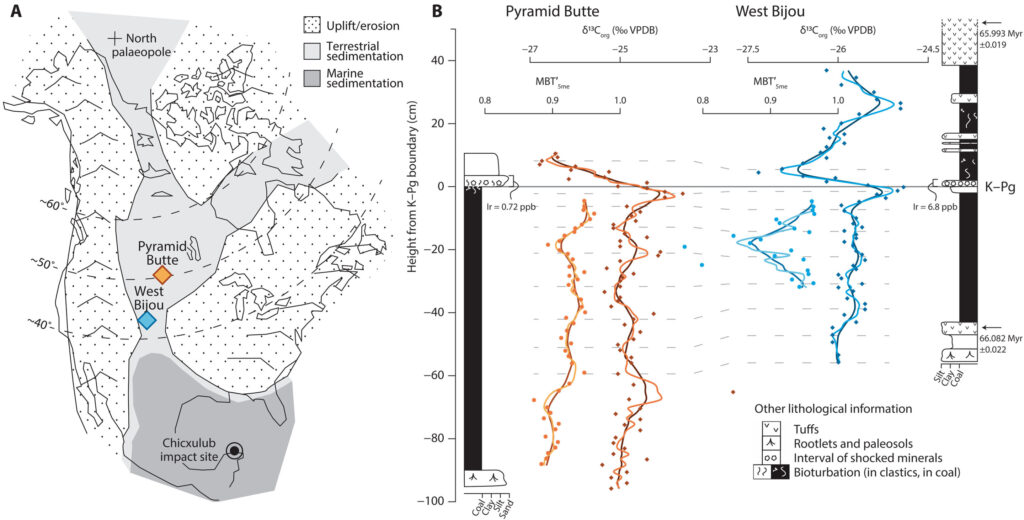Volcanic Activity and Dinosaur Extinction: New Insights
For years, the extinction of dinosaurs has sparked debates among scientists, with some attributing it to massive volcanic eruptions on the Indian peninsula. These eruptions, occurring just before a meteorite struck Earth 66 million years ago, have been thought to drastically alter the planet’s climate.
Recent research conducted by climate scientists from Utrecht University and the University of Manchester challenges this theory. While these eruptions did cause a temporary cooling period, their effects had dissipated thousands of years before the meteorite impact, suggesting that the meteorite was the main driver of the mass extinction event.
Published in Science Advances, the study provides compelling evidence against the volcanic extinction hypothesis. The well-documented meteorite impact in the Gulf of Mexico remains the leading explanation for the end of the dinosaur era, as scientists contend with the timing and scale of volcanic activities that took place in India both before and after the impact.
Analyzing Ancient Peats for Clues
By examining fossil molecules in ancient peats from the USA, researchers reconstructed air temperatures from the period of both the volcanic eruptions and the meteorite impact. They identified a significant volcanic eruption about 30,000 years before the meteorite strike, coinciding with a cooling of at least 5° Celsius. This cooling was likely due to volcanic sulfur emissions blocking sunlight.
Importantly, the study found that by approximately 20,000 years before the meteorite impact, global temperatures had already rebounded, likely aided by volcanic CO2 emissions. Lauren O’Connor from Utrecht University states, “These volcanic eruptions and associated CO2 and sulfur release would have had drastic consequences for life on Earth. But these events happened millennia before the meteorite impact and probably played only a small part in the extinction of dinosaurs.”
The Meteorite’s Destructive Path
With the volcanic effects deemed minimal, the Chicxulub meteorite impact emerges as the primary cause of dinosaur extinction. Rhodri Jerrett from the University of Manchester explains, “By comparison, the impact from the asteroid unleashed a chain of disasters, including wildfires, earthquakes, tsunamis, and an ‘impact winter’ that blocked sunlight and devastated ecosystems. We believe the asteroid that ultimately delivered the fatal blow.”
The researchers used specific membrane-spanning molecules from bacteria in ancient sediments to calculate past temperatures, creating a detailed timeline of events leading up to the extinction. This method allows scientists to compare temperature changes to the fossil record, enhancing understanding of the relative timing of these critical events.
Collaborators from Utrecht University, the University of Manchester, Plymouth University, and the Denver Museum of Nature and Science are extending this research to other significant periods in Earth’s history.
More information: Lauren O’Connor, Terrestrial evidence for volcanogenic sulfate-driven cooling event ~30 ka before the Cretaceous–Paleogene mass extinction, Science Advances (2024). DOI: 10.1126/sciadv.ado5478
Provided by
Utrecht University
Original Story at phys.org
